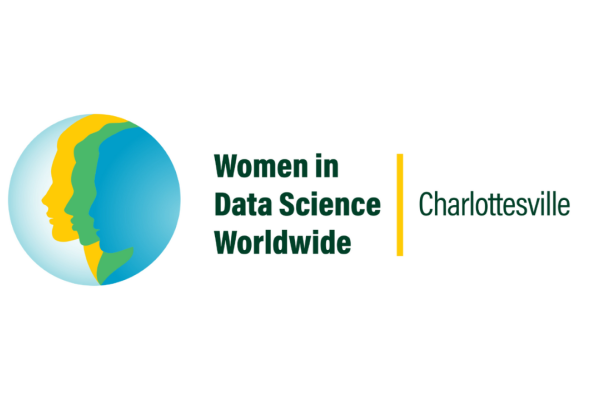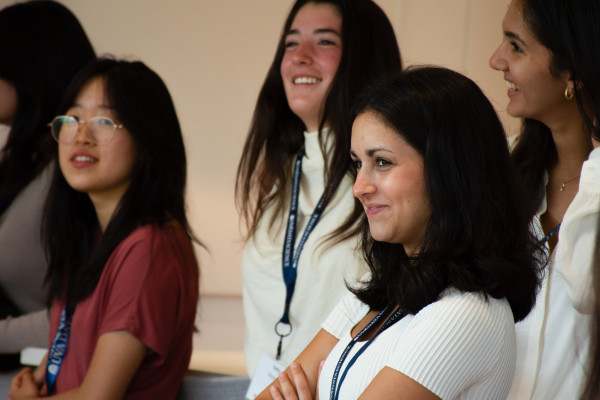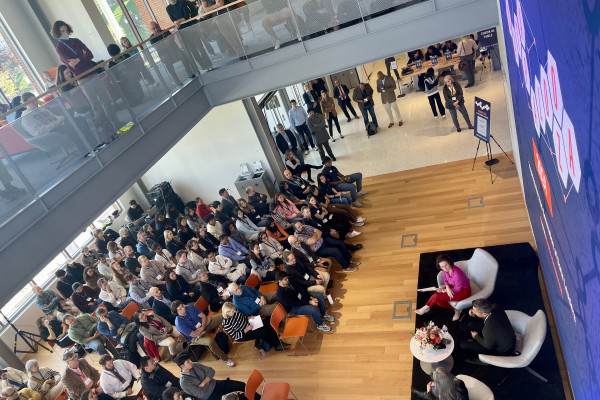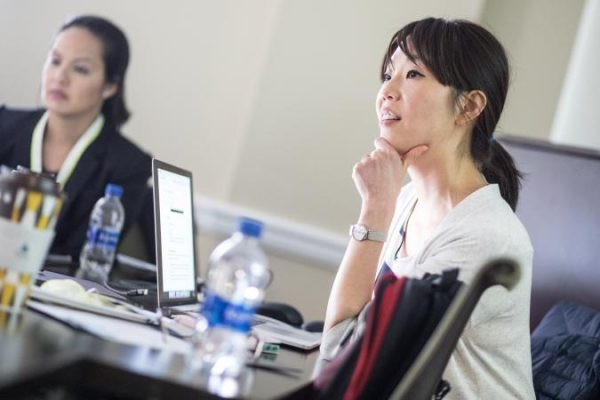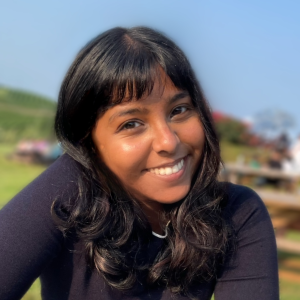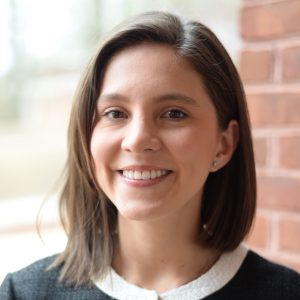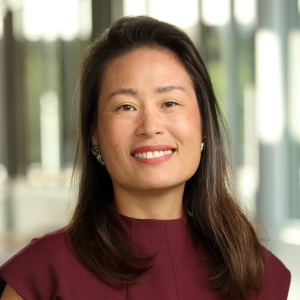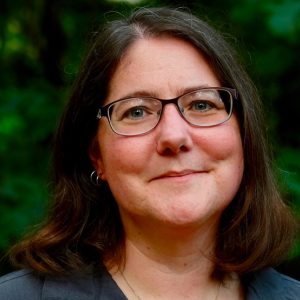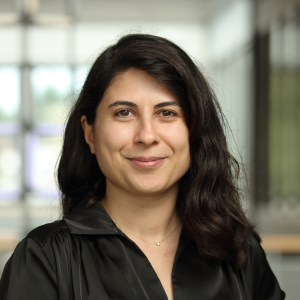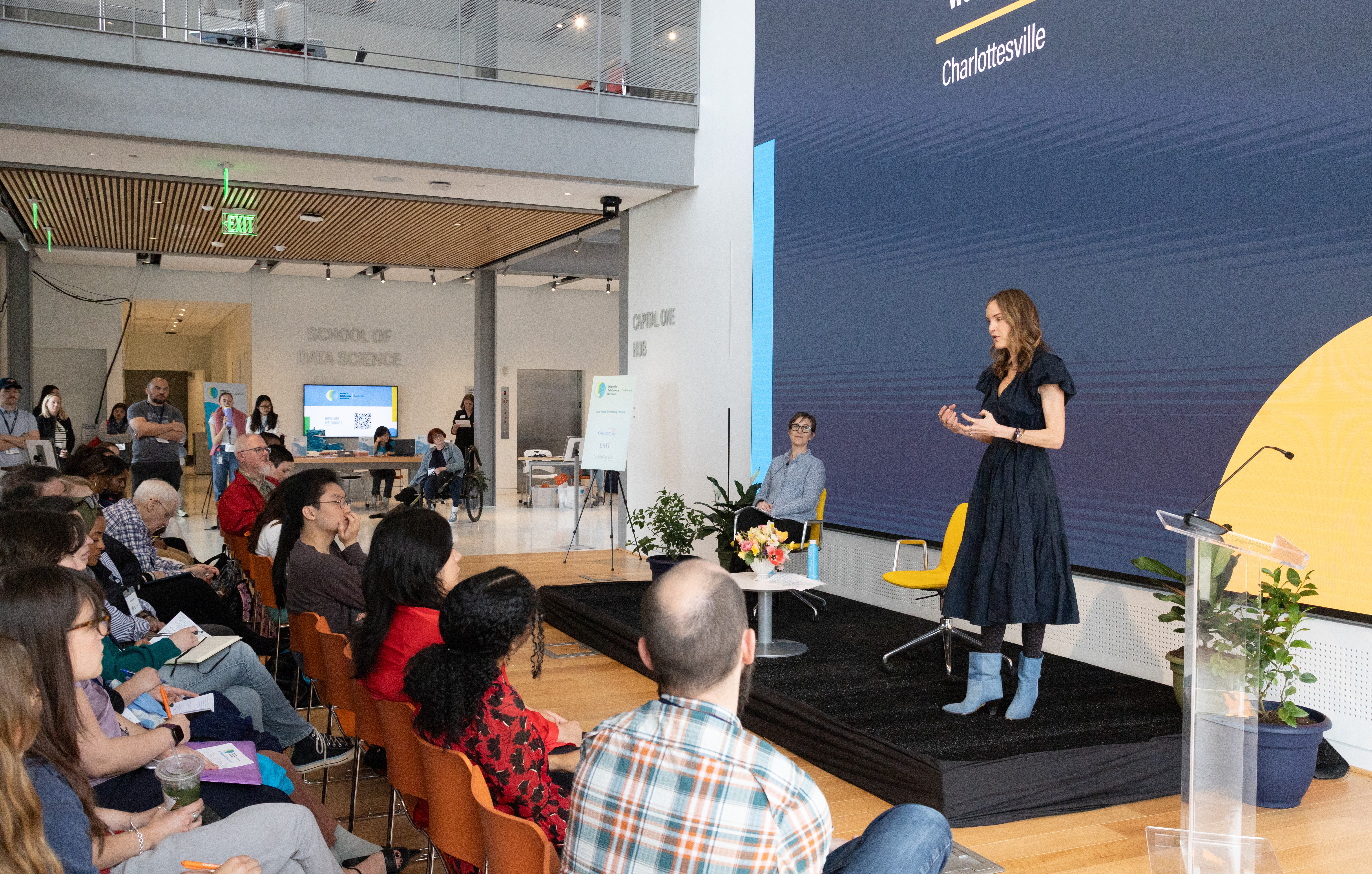
'Your Perspective is Your Superpower': Takeaways from WiDS 2025
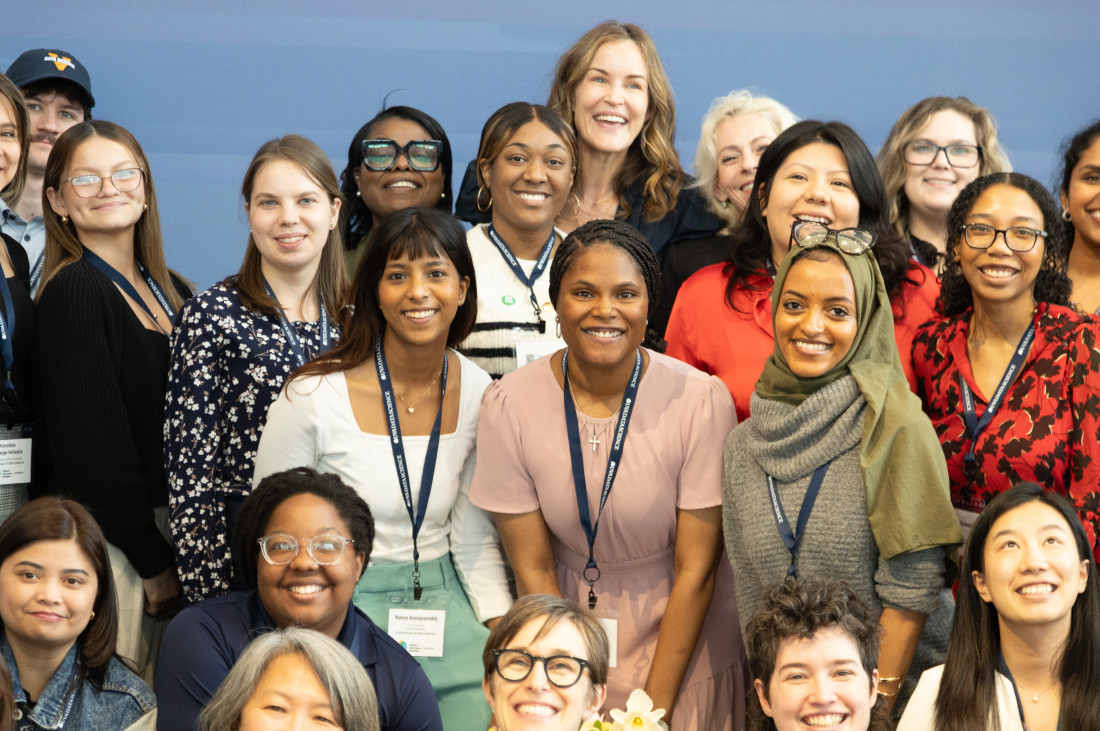
The University of Virginia School of Data Science on March 28 hosted Women in Data Science Charlottesville 2025, inspiring hundreds of attendees and featuring outstanding women doing outstanding work. The daylong event included a UVA alumna as the keynote speaker, lightning talks from Ph.D. students, an art project workshop, and a panel of industry professionals. Attendees learned, among other things, the importance of self-advocacy, professional curiosity, and taking risks.
Women in Data Science Worldwide is a nonprofit organization that provides the next generation of leaders in data science and AI with resources for upskilling, networking, mentorship, and growth opportunities. WiDS Worldwide has hosted over 1,500 events, boasts over 3,000 ambassadors, and has mentored and upskilled an estimated 150,000 people.
WiDS Charlottesville 2025 marked the first time the annual event was held at the new School of Data Science building, nearly a year after its grand opening. Emma Candelier, Director of Marketing and Communications at the School of Data Science and a WiDS ambassador, shared what it meant to host WiDS at the School. "Hosting the Women in Data Science Charlottesville conference in our new home was significant," she said. "Both the conference and the School are committed to fostering connecting and access to data science for everyone."
The Future of Data Science
After a welcome from Ph.D. in Data Science student Navya Annapareddy, the day kicked off with the discussion "From Classroom to Transformation: A Conversation on the Future of Data Science." The keynote speaker was UVA alumna Lexi Reese, CEO of Lanai and former Google and Gusto executive, interviewed by Lisa Bowers, former Genentech/Roche executive and the director of UVA's Enterprise Studio.
Reese shared her perspective on the current data science industry as a professional and entrepreneur in a refreshing and relatable way, making jokes with the audience and ensuring their understanding of the more complex mechanisms at play.
She began by describing her current role as founder and CEO of Lanai Software, explaining that Lanai is an enterprise AI observability and security platform. It empowers organizations to harness AI's potential by providing visibility into how their teams are using AI technology, helping identify valuable use cases to scale while ensuring responsible adoption that respects privacy and security.

Bowers questioned the current hiring market for data scientists and what Reese looks for in potential applicants. As an industry leader and hirer of data scientists, Reese said that culture eats strategy for breakfast. "If I wanted to hire people that check the technical requirements box, I would be done hiring right now, but I don't," Reese explained. "I hire for values and motivation. I want the candidate to have fire and spark curiosity, urgency, empathy, and drive. Technical skills will come and go, but your curiosity and your clarity of capability to deliver value to a company is never going to go away."
Reese further highlighted the necessity of communication skills for data scientists. "You've got to translate this technical concept into stories, metaphors, language that people are going to remember because you're not communicating only to be understood but to make people feel, think, and do something as a result of what you said," she explained.
Bowers then asked Reese what excited her most about data science today. Her answer was triple-check systems for testing large language models that involve testing the model before, during, and after it is fed new information to check for data biases or contamination based on how the model was trained.
Reese also shared her "four C's" for developing products that meet consumer needs: curiosity, community, commitment, and clarity. Karolina Naranjo-Velasco, Ph.D. in Data Science student and a WiDS ambassador, shared her response and takeaways from this. "Curiosity especially caught my attention," she said. "Why curiosity? It encourages participants to ask questions. A 'good' data scientist sees ideas behind questions and finds valuable insights from clients. Curiousness drives development, and it resonated with me a lot in her talk."
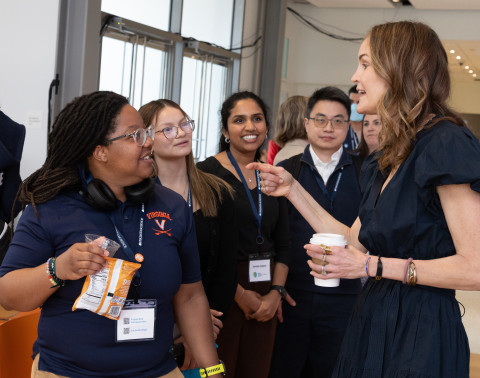
Lastly, on what advice Reese had for women starting their data science careers today, she said: "your perspective is your superpower."
She maintained that young data scientists should prioritize their integrity in the face of ethical concerns and that diverse perspectives only strengthen data science teams.
Data Science in Practice
The event then broke into three breakout sessions for attendees to choose from: research lightning talks, "Data Science & Me: A Conversation and Art Project," and "Data Sleuthing: Investigating News-Reported Data Beyond the Headlines."
The research lightning talks featured presentations from Ph.D. in Data Science students Zoë Gray, Kaleigh O'Hara, and Jade Preston and Ph.D. in Computer Science student Elizabeth Palmieri on topics ranging from physics-informed machine learning and pediatric exercise testing data analysis to hyperspectral image unmixing and text summarization model training, respectively. The students demonstrated the wide-ranging applications and intricacies of data science while successfully translating their complex and scientific research into a presentation easily digestible by general audiences.
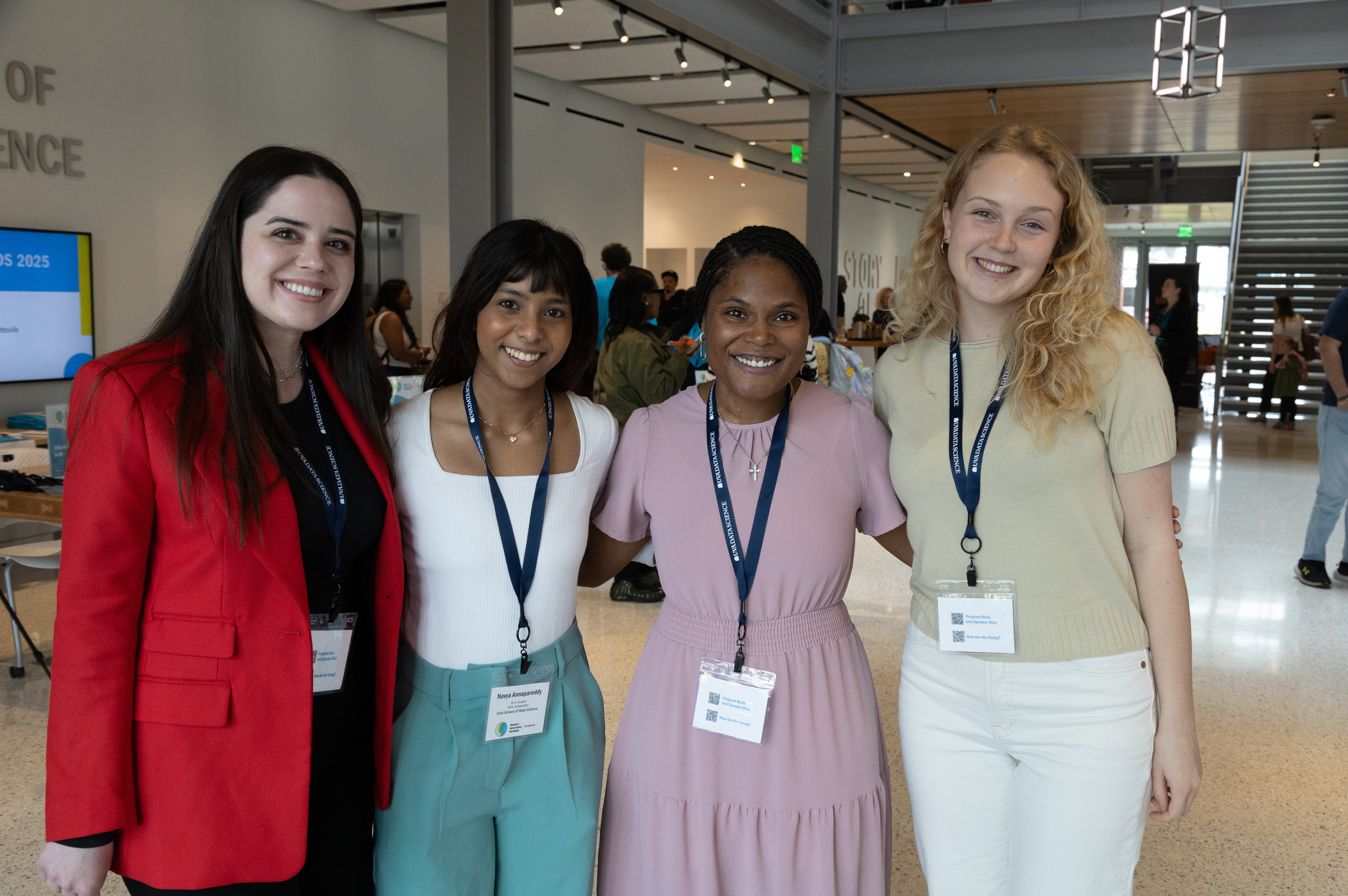
The "Data Science & Me: A Conversation and Art Project" reflection session, co-moderated by Naranjo-Velasco and Siri Russell, associate dean for community and government partnerships, offered a unique blend of dialogue and creative expression focused on the intersection of data science, identity, and interdisciplinary exploration. Participants of all ages and from diverse fields — including psychology, law, education, and communications — gathered to discuss their personal and professional connections to data science. Rather than a formal presentation, the session unfolded as a collaborative conversation, with attendees reflecting on what inspires them, the challenges of entering the field, and how data science can be a powerful tool for human connection and societal impact.
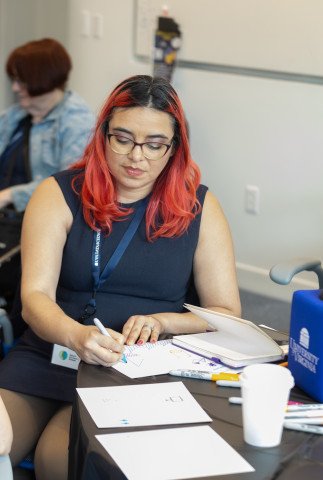
M.S. in Data Science student Andrea Jacobs noted how a misconception about data science in general is that it is a specialized subject, when the truth of the matter is that we use data every day. "Just making your decision of what you want to order on DoorDash, you're looking at data," Jacobs said. "It's more now looking at it, like, 'What do you want to do using data and the knowledge that we've already shared among all of us, across all of society?' Data is used for everything now. I have yet to find an industry where no one is using data to make some level of decision."
Other key themes included the importance of programming literacy, especially in Python; the foundational role of math concepts like probability and linear algebra; and the broader need for curiosity, confidence, and representation in the field. The conversation also addressed the gendered challenges within data science, the impact of conferences like the Grace Hopper Celebration and the related networking opportunities, as well as the value of validation and community support.
The session concluded with participants translating their reflections into artwork that represents their personal journeys in data science — pieces that will become part of a mural at the School of Data Science. This collective expression underscored a shared commitment to responsible, inclusive, and human-centered data science for the common good.
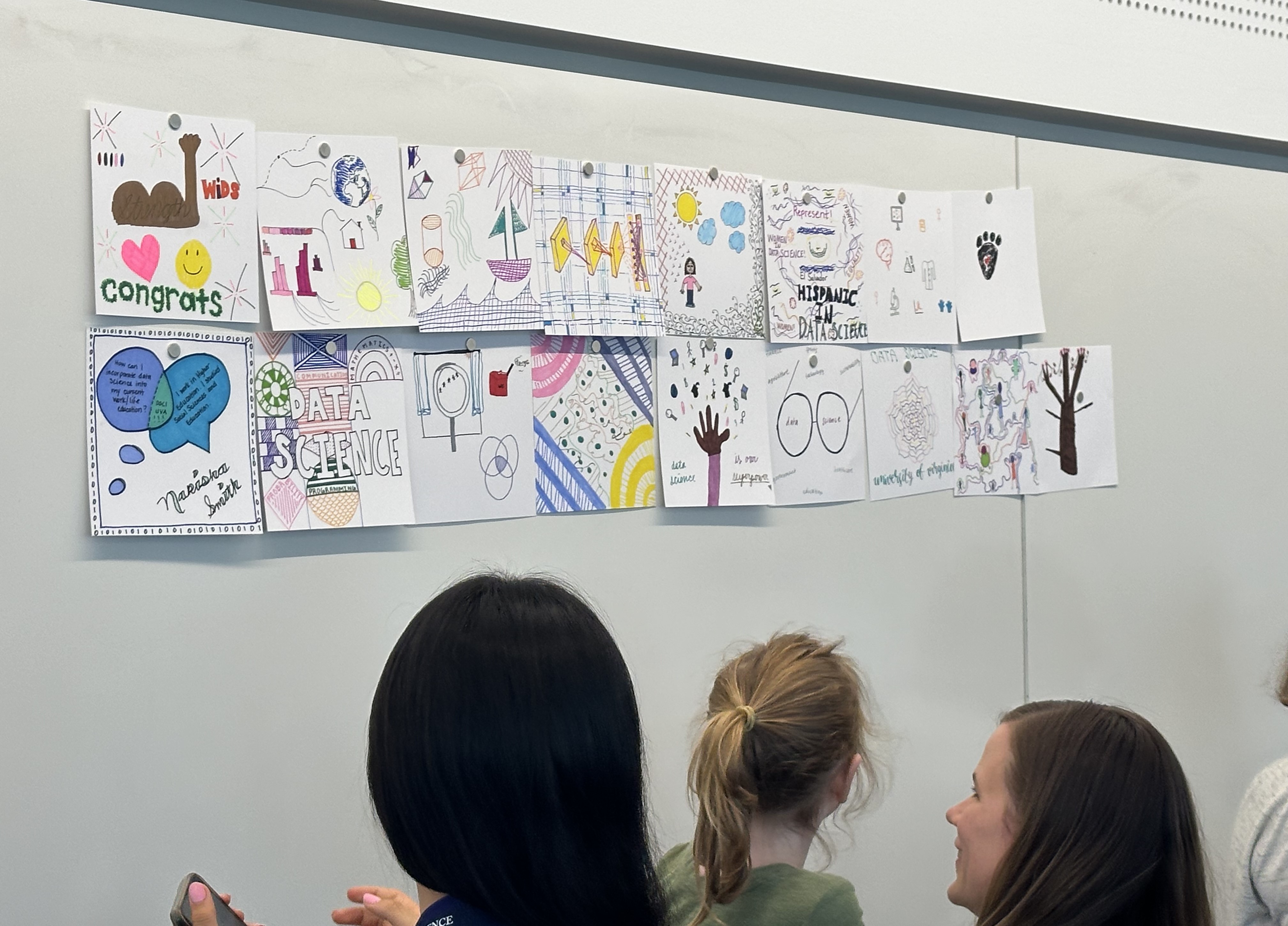
Data Science and Self-Advocacy
WiDS Charlottesville 2025 concluded with a panel of industry professionals sharing their practical experience and advice, called "Advocating for Yourself in Data Science." The panel included Michele Claibourn, assistant professor of public policy and data science and director of community-centered analysis at the UVA Center for Community Partnerships; assistant professor of data science Nur Yildirim; AI software engineer at Ironclad and MSDS alumna Hope McIntyre; and moderator Jennifer West, dean of the UVA School of Engineering and Applied Science.
West began by defining the panel's goal of cultivating leaders in data science through self-advocacy and confidence, stating: "To be a leader in data science, it's not just strong technical skills, but also leadership abilities, communication, and especially the ability to advocate for yourself. Make sure your voice is heard."
The panelists began by sharing experiences in their careers where self-advocacy was pivotal. McIntyre described an experience telling the truth about her lower level of experience with search engines to an interviewer. Through referencing her most relevant coursework and research, she ended up securing the job. "I think the lesson I took away is never leave a room without sharing something that you think is relevant," she said.
The panel further discussed collaboration strategies for women in academia as well as systemic barriers that make self advocacy harder. Claibourn described how individual advocacy benefits everyone. "Individually we don't have the same power that teams have, so we're actually collectively advocating for one another," she said. "We have to do it together. We have to imagine that our advocacy is mutual advocacy, and a part of a collective team."
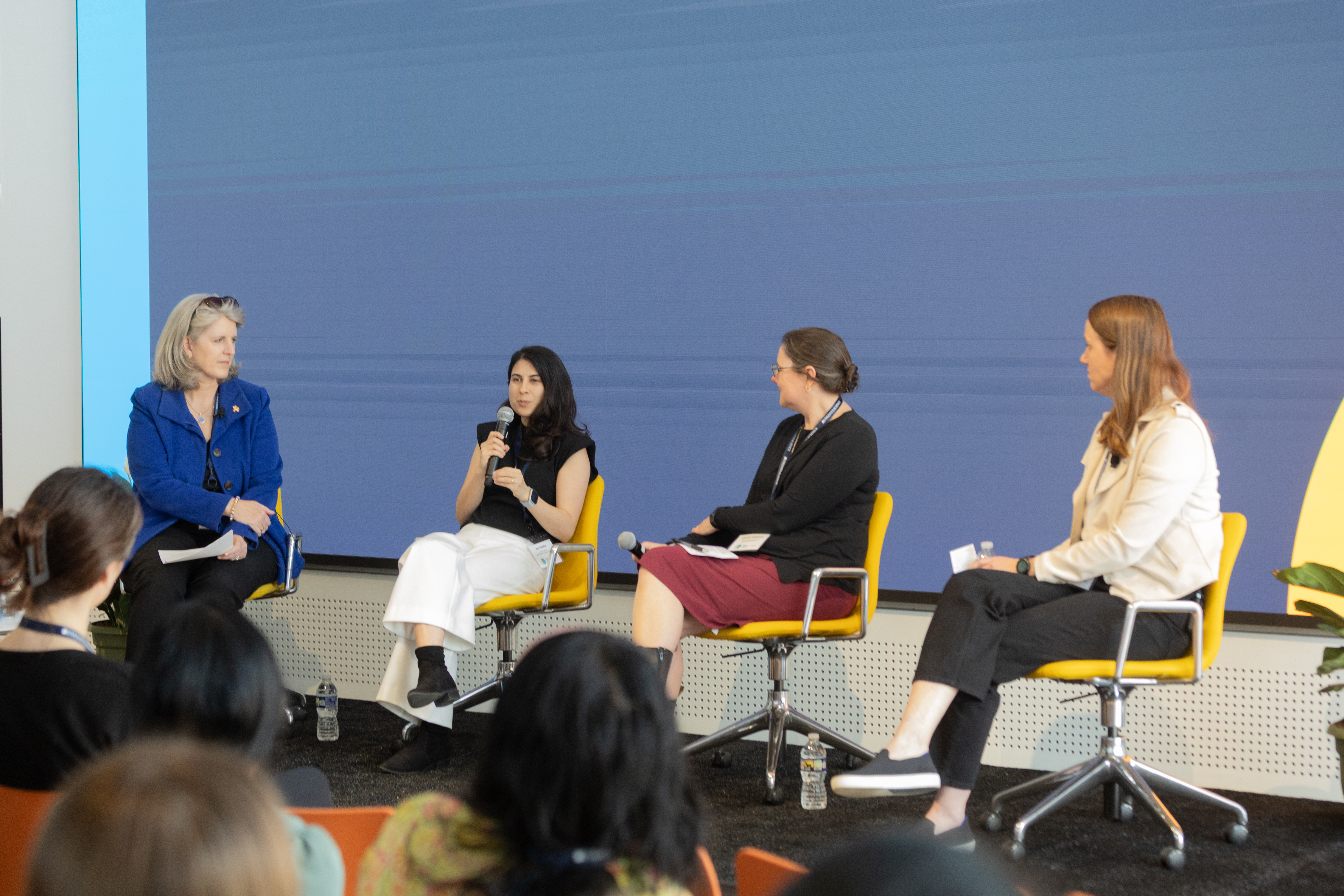
The panel finished by emphasizing how mentorships can uplift young data scientists and the importance of making your work understood. McIntyre described one way of going about this. "I think the challenge is really making your work understood in what the impact is. My advice is connecting your work to business metrics that other people across the organization understand. If a fraud detection model is 2% more accurate, that could be a $5 million a year difference. These things have real meaning to other people, so the challenge is getting outside of your own perspective and really making your impact in your work to other people across the company."
The key takeaways from WiDS Charlottesville 2025 were that self-advocacy is crucial, communication soft skills are sought after professionally and academically, and unique perspectives belong. WiDS ambassador Naranjo-Velasco summed up three points she hoped participants took away:
"Firstly, never hesitate to ask questions and stay curious. Questioning methodologies is crucial in Data Science. Secondly, be brave. Embrace challenges and enjoy them. Lastly, give yourself the chance to do things you never thought possible. Ask yourself, 'Why not?'"
